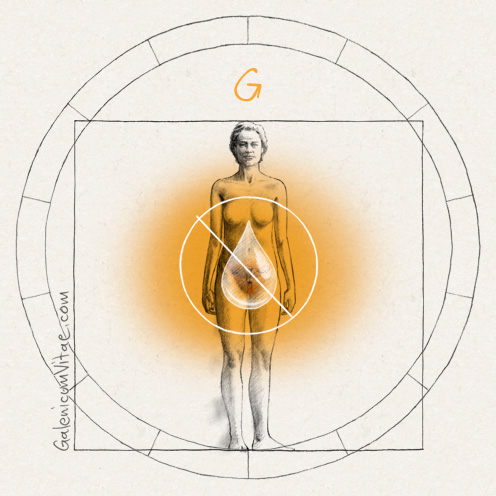A semen analysis can provide your doctor with information about sperm count and the quality of sperm. Your doctor may want to analyse the semen more than once.
An abnormal sperm is one that has defects in shape and/or mobility. Testing for these anomalies involves a detailed analysis of the characteristics of the sperm after dying and examining them under a microscope (seminogram or spermiogram).
According to the percentage of sperm that is considered normal, the doctor can decide on the best form of treatment.
Menopause is not a disease, it is the time of life in which a woman stops having periods. It usually occurs naturally, most often after 45 years of age. Menopause occurs because the ovaries stop producing hormones (oestrogen and progesterone).
A woman reaches menopause when she has not had a menstrual period for one year. Variations and symptoms can start several years earlier. They include:
- A change in periods: lasting more or less time, more or less heavy, with more or less time between periods.
- Hot flashes and/or night sweats.
- Difficulty sleeping.
- Vaginal dryness.
- Mood swings.
- Difficulty concentrating.
- Less hair and more facial hair.
Some symptoms require treatment. Talk to your doctor about what to do during menopause.
Make sure your doctor knows your family’s medical history. This will reveal the possible risks of heart disease, osteoporosis or breast cancer.
For more information visit:
Menopause and Hormones: Common Questions
http://www.fda.gov/ForConsumers/ByAudience/ForWomen/ucm118624.htm
Menopause: Condition Information
http://m.nichd.nih.gov/topics/menopause/conditioninfo/Pages/default.aspx
What are the treatments for other symptoms of menopause?
http://www.nichd.nih.gov/health/topics/menopause/conditioninfo/pages/treatments.aspx
Menopausal Hormone Therapy and Cancer Risk
http://www.cancer.org/cancer/cancercauses/othercarcinogens/medicaltreatments/menopausal-hormone-replacement-therapy-and-cancer-risk

 Digestive
Digestive  Blood
Blood Cardiovascular
Cardiovascular Dermatology
Dermatology Genitourinary,
Genitourinary, Hormones
Hormones Infections
Infections Oncology and
Oncology and Musculo-skeletal
Musculo-skeletal Mental health and
Mental health and Parasites
Parasites Respiratory
Respiratory Senses
Senses Various
Various




